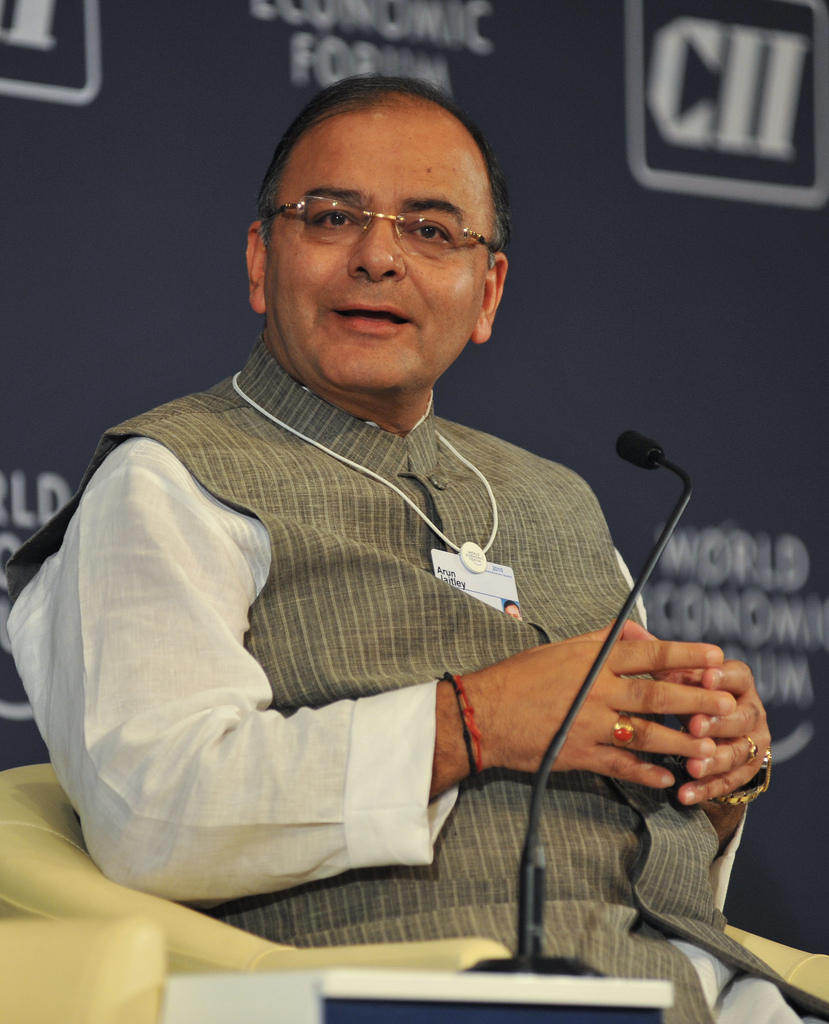A perhaps apocryphal story goes that photographers and journalists working for this entertainment supplement of a newspaper would take money and put in news items and photographs of celebrities who were willing to pay.
Of course, the management was smart enough to soon figure this out. Further, they thought, if the journalists could make money, why not the company.
Hence, thereon you could simply go to their office, pay them, get a receipt and get stuff published in the entertainment supplement, for a certain price. What was essentially a bribe, became a smart business model.
The government of India has done something similar by coming up with the black money compliance window. Up until, the black money wallahs may have had to pay off the tax department to make sure they don’t come after them.
The government is now telling the black money wallahs instead of bribing my employees, pay us 15% extra (7.5% surcharge, 7.5% penalty over and above a 30% tax) and we won’t come after you. The black money wallahs will have total immunity from prosecution as well.
As finance minister Arun Jaitley said during the course of the budget speech: “I propose a limited period Compliance Window for domestic taxpayers to declare undisclosed income or income represented in the form of any asset and clear up their past tax transgressions by paying tax at 30%, and surcharge at 7.5% and penalty at 7.5%, which is a total of 45% of the undisclosed income. There will be no scrutiny or enquiry regarding income declared in these declarations under the Income Tax Act or the Wealth Tax Act and the declarants will have immunity from prosecution.”
What this essentially means is that if you have black money and are willing to pay 15% extra to the government, the law of the land won’t apply to you. Also, look at it this way, if you miss an advance tax payment, you pay a fine at the rate of 1% per month. But you pay 15% extra on your black money on which you have never paid tax and the government will look the other way.
As philosopher Michael Sandel writes in What Money Can’t Buy—The Moral Limits of Markets: “Why worry that we are moving toward a society in which everything is up for sale?…In a society where everything is for sale, life is harder for those with modest means. The more money can buy, the more affluence (or the lack of it) matters.”
The simple explanation for why the government is doing this is that they need money to match the expenditure that they have planned during the course of 2016-2017. So it is about money. Having said that there are other ways of earning it as well.
Take the case of ITC. As I have pointed out in the past, the government owns 11.19% of this company, which primarily makes money through selling cigarettes. The stake is owned through the Specified Undertaking of the Unit Trust of India. Why does the government continue to own this stake?
Over and above this, the Life Insurance Corporation(LIC) of India owns a 14.41% stake in the company. Effectively, the government owns one-fourth of ITC. Hence, this stake can easily be strategically sold at a price, which is better than the prevailing market.
The 11% stake through SUUTI would be worth Rs 28,471 crore as of yesterday. The government also owns stakes in L&T and Axis Bank through SUUTI. Why is the government holding on to these shares?
Is the government likely to sell these shares in 2016-2017? It is unlikely. Why do I say that? In the budget, the government has given an estimate of the amount of money it targets to earn during the course of this year, through disinvestment. It plans to raise Rs 56,500 crore through disinvestment. Of this Rs 36,000 crore is expected to be earned through the disinvestment of shares in companies that it owns.
Rs 20,500 crore is expected to come in through sale of shares in companies in which the government owns minor stakes. The government’s stake in ITC is worth much more than that. Hence, it is more than likely that the government will continue to own ITC during the course of this year as well. At the same time, it is ready to pardon people who have black money if they pay 15% extra to the government. It is also ready to tax 60% of the maturity corpus of Employees’ Provident Fund of private sector employees.
At the same time, it continues to finance loss making public sector enterprises. The Economic Survey released before the budget had a very interesting data point. Up to March 2014, the accumulated losses of public sector enterprises stood at a whopping Rs 1.04 lakh crore. The government continues to finance these loss making firms and in the process has to strike a deal with black money wallahs to ensure that it has enough money.
Further, these loss making public sector enterprises are sitting on a huge amount of land and there has almost no effort to monetise this land and make some money in the process. The latest Economic Survey does recommend the sale of land of public sector enterprises. Let’s see if that happens.
The point being that the Modi government could have done several things to earn money before getting into striking deals with those who have black money.
Meanwhile, the government will continue running anti-tobacco advertisements. Funny country we are.
The column originally appeared on the Vivek Kaul’s Diary on March 4, 2016
